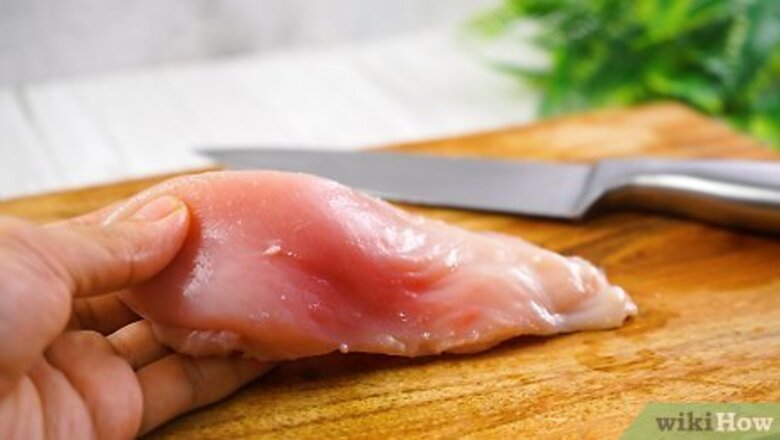
views
Creating a Cutlet
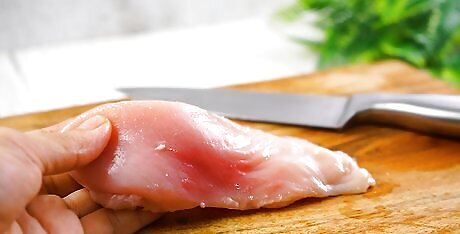
Debone a chicken breast if you bought bone-in meat. Take the chicken out of the package and lay the breasts on a cutting board so the bones are touching the board. Use your hand to feel where the bone is to follow it. Carefully use a knife to slice the breast near the rib bones. Take your knife as close to the bone as possible so that you don't remove too much flesh. Keep slicing down the length of the chicken breast until you've cut away the rib bones and you're left with a boneless cut of meat. Use caution when you're cutting close to the rib bones since you don't want to accidentally cut your hand that's holding the chicken in place. Trim off excess fat from the sides of end of the chicken breast so the meat is lean.
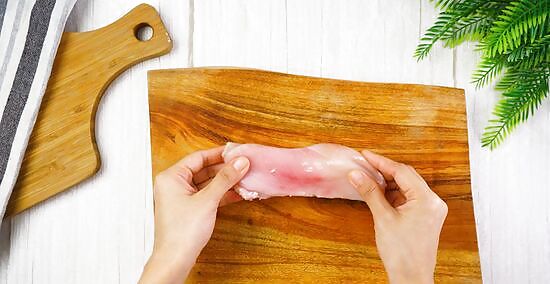
Lay a boneless chicken breast on a cutting board. Take the chicken breast out of the package and place it on a cutting board. Check to see if your cutting board slides around. If it does, place a kitchen towel underneath it to prevent it from slipping while you're cutting the meat.
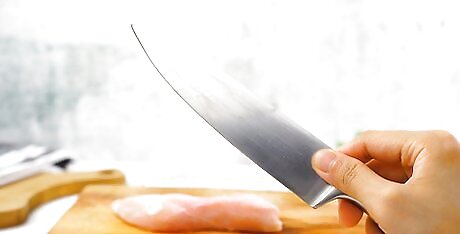
Get out a sharp chef's knife. Choosing the right knife makes this process so much easier. If you use a small paring knife, you'll be sawing back and forth across the meat which makes it uneven. Using a serrated knife tears the meat so your cutlets end up jagged. For the best cut, find a sharp chef's knife that you're comfortable handling. If the knife is dull, spend a few seconds sharpening it before you begin.

Place your non-dominant hand flat on the chicken breast. This keeps the meat from sliding around while you're cutting it into thin cutlets. Remember that you'll get 2 cutlets from each chicken breast that you're cutting.

Slice the knife horizontally through the middle of the chicken breast. Hold the knife in your dominant hand and turn the blade so it's horizontal. Then, make 1 smooth cut through the middle of the chicken near the thick end of the breast. Since you're using a sharp knife, just bring the knife straight to the narrow end of the chicken breast without using a back and forth motion. If you saw back and forth, the cutlets will have a jagged surface and they might not be level.
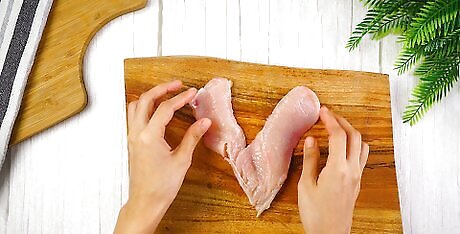
Open up the chicken breast to finish slicing the cutlets apart. If you weren't able to cut completely through the chicken breast, separate the breast like you're opening a book. Then, finish slicing through the meat to make 2 thin cutlets.Variation: If your recipe calls for butterflying the chicken breast, don't cut it into 2 pieces. Instead, stop slicing through the meat when you're about ⁄2 inch (1.3 cm) from the edge of the breast. This makes a single, thin piece of chicken when you unfold it. Now you can cook the cutlets or refrigerate them in an airtight container for up to 2 days.
Pounding the Chicken
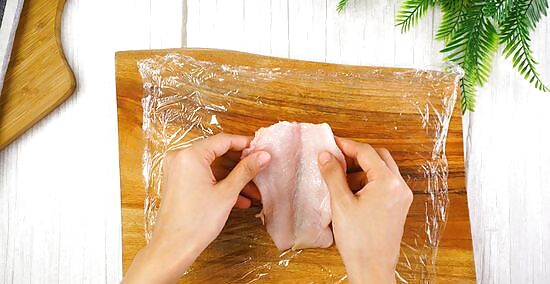
Lay a chicken cutlet on a piece of plastic wrap. Place the plastic wrap on your counter or cutting board and lay 1 cutlet on it. If you'd like to pound a piece of chicken that you butterflied, open the piece and lay it flat on the plastic wrap. If you don't have plastic wrap, put the chicken inside a sealable plastic bag. To make it easier to get the chicken out, cut the edges of the bag open.
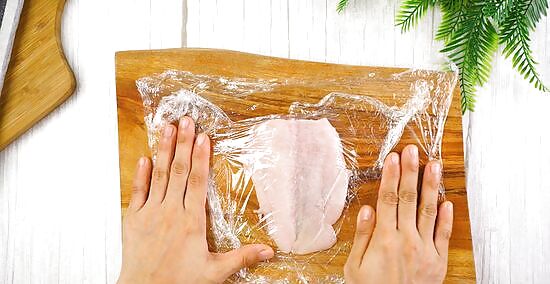
Place another piece of plastic wrap over the chicken. Press the plastic wrap onto the chicken and lightly press the plastic wrap around the sides so the meat doesn't slide around. Don't seal the plastic wrap tightly around the chicken cutlet or the meat won't have room to expand when you pound it.
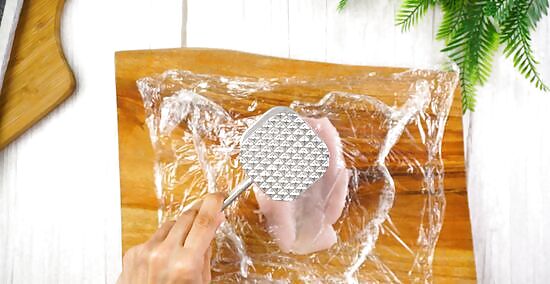
Pound the chicken with the flat side of a meat mallet. Most meat mallets have smooth and ridged sides. Bring the smooth side of the mallet down onto the plastic-covered cutlet and apply pressure as you pound. Work across the entire piece of chicken so it's an even thickness.Tip: If you don't have a meat mallet, use a flat, heavy skillet. You could gently pound the meat with a cast-iron skillet, for instance. Keep pounding until the cutlet is as thin as your recipe calls for. In general, you'll pound the chicken cutlet so it's between ⁄4 and ⁄2 inch (0.64 and 1.27 cm) thick.
















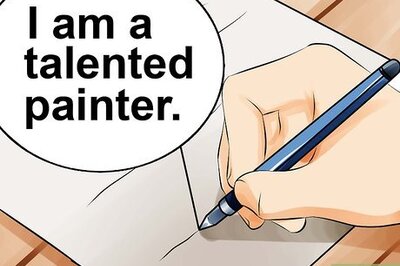



Comments
0 comment